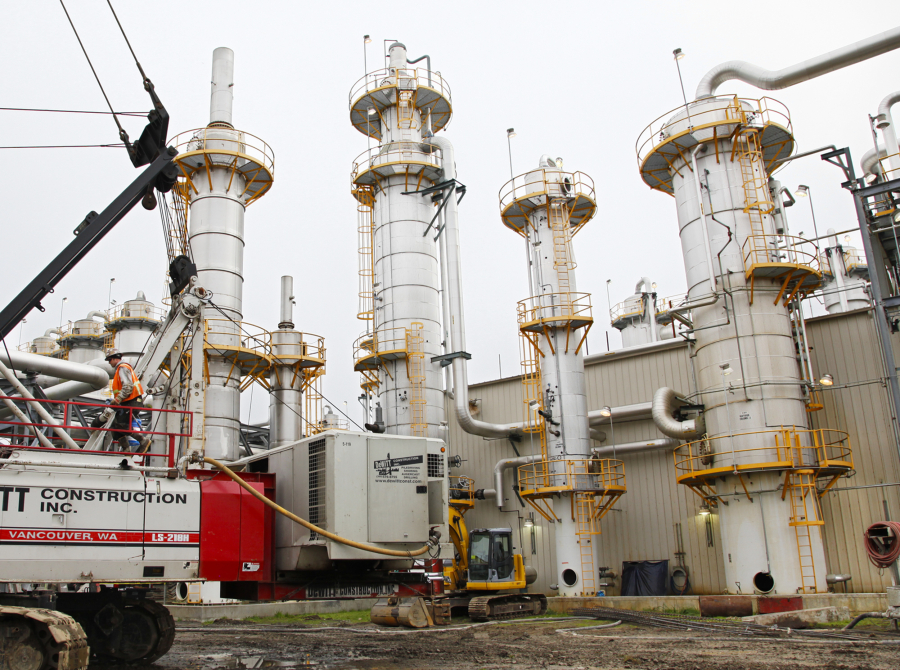LONGVIEW — Global Partners’ terminal at Port Westward has reopened, only this time ethanol is replacing crude oil as the commodity of choice at the Clatskanie, Ore.-area facility.
The terminal, known as Columbia Pacific Bio-Refinery, began receiving shipments of the flammable gasoline additive earlier this summer. In June, 95 rail cars carrying ethanol moved along the Columbia County rail line to Port Westward, according to the Oregon Department of Transportation. Numbers for July and August won’t be available until late September.
Plummeting oil prices forced the terminal to temporarily close in January. The company laid off 28 of 47 workers there. It’s not clear whether those employees got their jobs back. Global Partners declined to comment for the story.
Two years ago the terminal unloaded three-mile long trains every week of North Dakota crude oil onto barges bound for West Coast refineries. The volatile product was carried on the 60-mile rail corridor from Portland to Port Westward. The tracks run through communities such as Rainier, Ore., where some residents expressed concerns about the risks of derailment and explosions.
Rainier Mayor Jerry Cole said he wasn’t aware that Global Partners handles ethanol now.
“Whether it’s ethanol or the Bakken crude oil, we’re always concerned with safety. One (commodity) doesn’t really outweigh the next. … We want that downtown rail corridor to be safe,” Cole said.
A $7.8 million rail safety project is planned to upgrade rail tracks, crossing gates and make street improvements in Rainier. The “A Street Project” is expected to break ground in 2017.
Risk of derailment in Rainier is low because the trains there typically travel 10 mph, said Eric Smythe, operating chief at Columbia River Fire & Rescue. Most train derailments happen at speeds of 50 to 70 mph.
He added that the trains aren’t necessarily more risky with ethanol than crude oil.
“They’re all dangerous (in a derailment). They all will burn and you have to be prepared for every one of them,” Smythe said.
Columbia River Fire & Rescue and several local agencies are developing a contingency plan should a rail car derail, he said.
Originally the Port Westward facility was built to refine and handle ethanol, with the help of $36 million in green energy tax credits and loans from the state of Oregon. But the plant went bankrupt in 2009. JH Kelly, the Longview contractor who built the plant, ended up owning it through the bankruptcy process.
JH Kelly sold the facility to Global Partners, which began shipping crude oil there in 2012 with little public notice. The Oregon Department of Environmental Quality approved of switch to crude oil, but it caught the public and emergency officials off guard.
Last year the company was fined $102,000 for exceeding the 50 million gallon annual limit the state had authorized. In 2013, the Port Westward facility handled 300 million gallons of crude oil, six times the limit.



